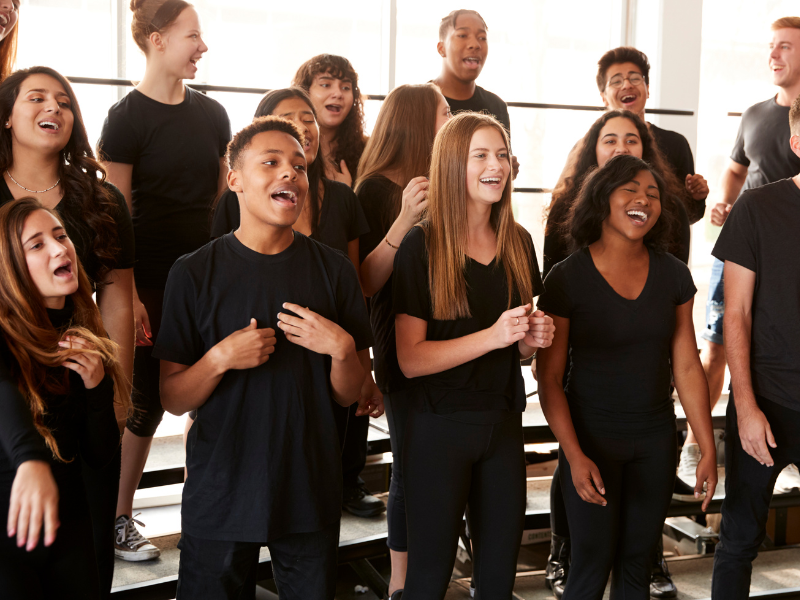Singing is fundamental to our biological makeup

This is a brilliant article worth a full read, but here are some highlights for you from one of BBBs favourite researchers Professor Sarah Wilson from the University of Melbourne.
“When we study singing, we don’t just learn about singing,” she says. “We learn about things that make us uniquely human and gain insights into the way the brain develops, why it developed the way it has, how it develops and why we’ve held onto music.
“There is a singing network in the brain [which is] quite broadly distributed,” Wilson says. When we speak, the hemisphere of the brain dealing with language lights up, as we might expect. When we sing, however, both sides of the brain spark into life.
Here are some new understandings about singing and our brains that may explain why trained singers and, what could be called, shower singers experience singing differently. “When the non-singers were scanned, the researchers found they were only using their language brain network to sing and didn’t venture into their singing networks at all. But when the everyday or “shower” singers and professional singers were scanned “we saw increasing differentiation between the singing and the language networks of the brain”, Wilson says. So, the better you are at singing, the more pronounced your specialised singing network. What we are doing when we practise and engage in singing is developing this specialised network, which gives us that physiological reward hit, the chills, the dopamine release, the sense of feeling good,” says Wilson. The more we sing, the more we develop this network in our brains, and the better it feels.”
There you have some highlights of the excellent article. Enjoy, and get singing!
BBB resources are now available in multiple languages—because every brain deserves the chance to learn music.
Melody isn’t just about pitch—it’s how we communicate emotion, intention, and meaning in music and speech alike.
What if perfect pitch isn’t a rare gift you’re born with, but a skill your brain can grow—shaped not by fate, but by how you listen, learn, and tune in over time?
Free Easter campaign download with posters and social tiles to help students understand the value of music learning.
What if you could advocate for music education without adding more work to your already packed schedule?
Engaging in musical activities offers profound benefits for our brains, enhancing various cognitive functions and emotional well-being.
While there can only be one winner of the BBB Music Teacher Award, we also recognize the outstanding efforts of our 2025 Runner-Up, Ruby Mensforth—a teacher whose dedication to fostering a love of music has left a lasting impact on her students.
Playing an instrument or singing in a choir isn’t just fun—it’s great for brain health too. A recent study found that people with musical experience have stronger memory and thinking skills than those without.
For many music teachers, March means concert season, assessment planning, and advocating for the importance of music education as budgets and schedules for next year take shape.
We know that speaking up for music in schools can feel overwhelming—but you don’t have to do it alone.
If you've ever conducted or played in an ensemble, you’ve likely felt it—that moment when everything clicks, the music soars, and your group performs at a level beyond anything you thought possible.
The World Economic Forum's Future of Jobs Report 2025 highlights the critical skills that will define the workforce of tomorrow.
A recent study in Ear and Hearing investigated how aging and hearing loss influence music perception, focusing on melody and timbre discrimination.
A new study in the Journal of Neuroscience reveals that our brains start processing rhythm as early as 27 weeks into pregnancy.
The 2025 Celebrate to Advocate Calendar is your go-to guide for making advocacy effortless this year!
A recent study from Waseda University has uncovered that when individuals listen to music, their heart rates synchronize, reflecting a unified physiological response.
A groundbreaking study in Nature Human Behaviour has revealed a fascinating genetic connection between musical rhythm skills and language-related traits, including dyslexia.
Recent research from the Georgia Institute of Technology has unveiled compelling insights into how music affects learning, memory, and emotions.
A recent study from Aarhus University reveals that while older adults can remember familiar music as well as younger individuals, their brains engage differently during the process.



















